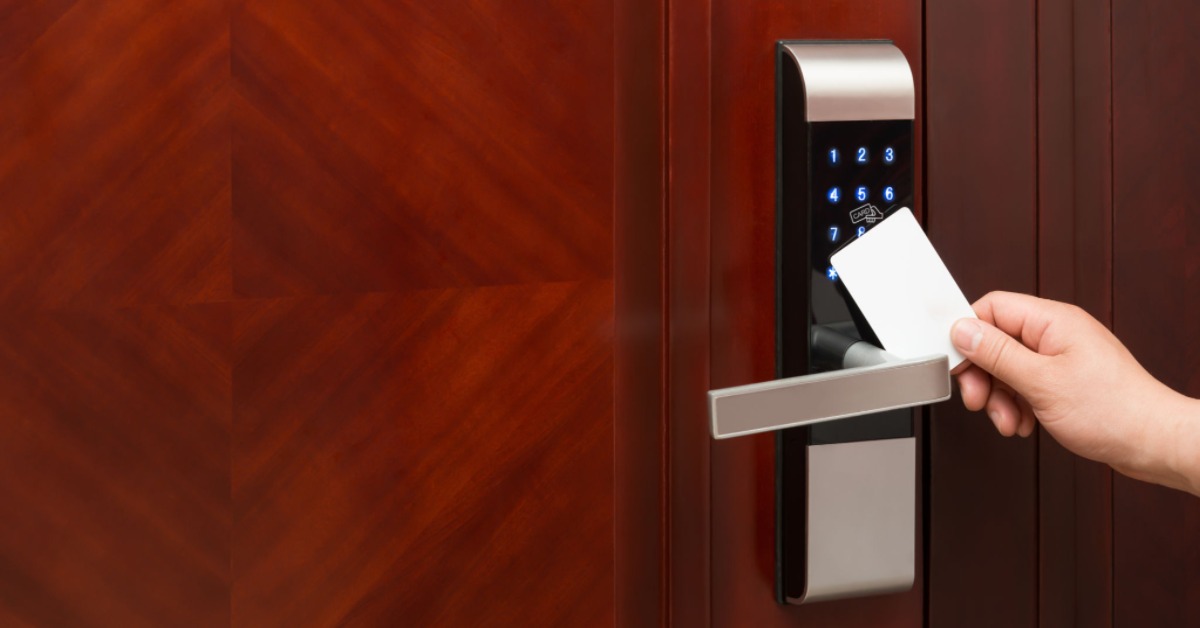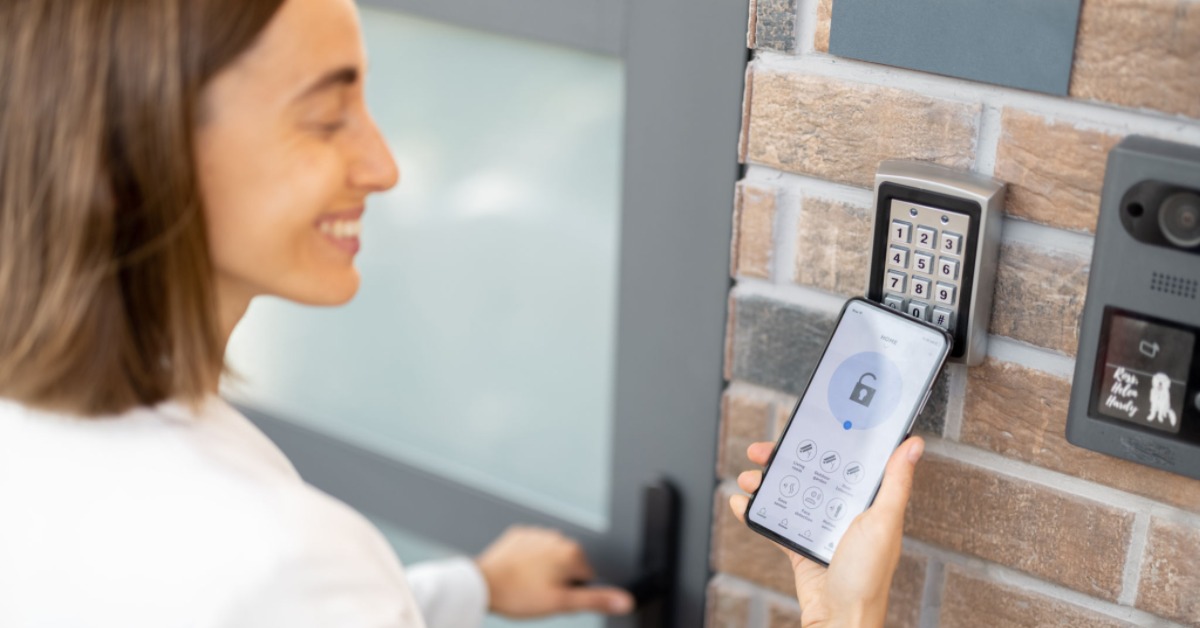The hospitality industry has witnessed a remarkable transformation in security and guest management, largely thanks to technological advancements. Among these, the evolution of lock systems stands out as a critical development, profoundly influencing the way hosts secure their properties and manage guest access. In the era of digitalization, where convenience and safety are paramount, understanding and implementing advanced lock management systems have become indispensable for hosts in the hospitality sector, including short-term rentals and hotels.
Understanding Smart Lock Management Systems
A smart lock management system is an innovative technological solution designed to enhance the security and accessibility of properties in the hospitality industry. These systems replace traditional keys with digital alternatives, such as codes, smartphone apps, or biometrics, allowing for more secure and flexible access control.
At its core, a smart lock management system operates through a combination of hardware and software. The hardware includes the smart lock itself, which is installed on doors and can communicate wirelessly with other devices. The software component typically involves a cloud-based platform that hosts and managers use to assign, change, or revoke access permissions remotely. This integration not only bolsters security but also provides unprecedented convenience for both hosts and guests.
For hosts, the benefits are manifold. They can manage access to their properties remotely, eliminating the need for physical key exchanges. This feature is particularly valuable for those managing multiple properties or those who cannot be physically present for each guest check-in. Additionally, smart lock systems often come with activity logs, offering hosts the ability to track entries and exits, further enhancing the security and management of their properties.
This study explores various technologies used in smart locks, such as IoT-based facial recognition, microcontroller-based password systems, knock-pattern detection using Arduino and GSM communication, fingerprint recognition, and RFID-based digital door locking systems. Each technology has its unique features and advantages, offering different levels of security and convenience. Incorporating information about these diverse technologies can provide a more comprehensive understanding of the current state and possibilities in smart lock systems, especially relevant to the hospitality industry’s evolving security needs
Smart Lock Guest Access: A New Standard in Hospitality
Smart lock guest access represents a paradigm shift in how hospitality businesses manage guest entry. By leveraging technology, this approach provides a seamless and secure experience for guests while streamlining operations for hosts.
The convenience for guests is evident from the moment they book a stay. Instead of coordinating key pickups or waiting for a host to grant access, guests receive a digital key or code that they can use to enter the property. This system is particularly advantageous for late arrivals or those with unpredictable travel schedules, as it eliminates the need for in-person interactions for entry.
From a security standpoint, smart lock guest access offers enhanced control. Digital keys or codes can be time-limited, expiring automatically at the end of a guest’s stay, thereby reducing the risk of unauthorised access. For hosts, this means no more worries about keys being copied or not returned. Furthermore, the ability to issue and revoke access remotely adds an extra layer of flexibility and control, essential in managing short-term rentals and hotel properties.
Hotel Door Lock System: Integrating Technology with Tradition
The transition from traditional key-based systems to smart locks in hotels signifies a major leap in guest service and property management. Modern hotel door lock systems offer a blend of security, efficiency, and user-friendliness, aligning with the expectations of today’s tech-savvy travellers.
These systems often employ technologies like RFID (Radio-Frequency Identification), NFC (Near Field Communication), or Bluetooth, allowing guests to access their rooms using keycards, smartphones, or even wearables. The integration of these systems into hotels not only enhances guest convenience but also elevates operational efficiency. For instance, the front desk can issue or change keycards instantly, and the need for physical key management is drastically reduced.
Moreover, advanced hotel door lock systems often integrate with other property management systems, creating a cohesive ecosystem that streamlines various aspects of hotel operations. This integration can include linking to reservation systems, enabling automatic room assignment and key issuance, thereby reducing check-in times and improving the overall guest experience.
RFID Latch: The Role of Radio-Frequency Identification in Security
Radio-Frequency Identification (RFID) technology, a critical component in modern security systems, plays a pivotal role in enhancing hospitality security. An RFID latch system operates by using radio waves to communicate data between a tag (such as a keycard) and a reader (the lock itself), facilitating secure, keyless entry to rooms or properties.
The implementation of RFID latches in the hospitality industry offers significant advantages. Firstly, the convenience for both guests and staff is unparalleled. Guests can access their rooms using keycards that are easy to carry and use, while staff can manage these keycards with ease, programming or deactivating them as needed. This ease of management extends to controlling access to different areas of a property, such as gyms, pools, or exclusive lounges, enhancing the overall guest experience.
From a security perspective, RFID systems offer a high level of protection. The data encoded on RFID tags is difficult to duplicate, reducing the risk of unauthorised access. Additionally, the system can be integrated with other security measures, such as surveillance cameras, to create a comprehensive security network. Moreover, RFID latch systems can be programmed to provide audit trails, giving property managers insight into access patterns and identifying potential security breaches.
Comprehensive Look at RFID Lock System
Delving deeper into RFID lock systems, these sophisticated mechanisms function by embedding a small chip and antenna in a card or fob, which communicates with the RFID reader installed in the lock. When the card or fob is presented to the reader, the lock receives the encrypted data and, if verified, unlocks the door.
One of the greatest strengths of RFID lock systems is their versatility. They can be tailored to a wide range of property types, from small bed and breakfast establishments to large, multi-faceted hotel complexes. This flexibility extends to the types of credentials used – from simple cards to more advanced options like wristbands or mobile devices, catering to different guest preferences and property themes.
Another advantage of RFID systems is their scalability. As properties grow or evolve, adding additional locks or changing access parameters is straightforward. This scalability ensures that the security system can keep pace with the changing needs of the hospitality industry.
Moreover, RFID systems offer robust security features. The technology supports strong encryption standards, making it challenging for unauthorised individuals to clone or tamper with the credentials. This aspect is crucial in maintaining guest trust and property reputation, key factors in the success of any hospitality business.
Digital Lock on Gate: Securing the First Point of Entry
Securing the main entry points of a property is crucial in the hospitality industry, and digital locks on gates play a vital role in this regard. These locks, often equipped with keypad entry, biometric sensors, or remote access capabilities, provide the first layer of security for a property.
Digital locks on gates offer several benefits. For one, they provide a strong deterrent against unauthorised entry, as they are more challenging to bypass compared to traditional locks. They can also be integrated with broader property management systems, allowing for seamless control and monitoring of access points.
The convenience factor of digital gate locks is another significant advantage. Guests can be given access codes or digital keys before their arrival, enabling them to enter the property without needing to meet a host or front desk staff. This feature is particularly beneficial for properties with self-check-in options, enhancing the guest experience by providing flexibility and privacy.
For property managers, digital gate locks offer a level of control and oversight that is essential in today’s fast-paced hospitality environment. Access can be easily granted, altered, or revoked remotely, and integration with surveillance systems can provide real-time monitoring of entry and exit activities. This level of control ensures that property managers can maintain a secure environment while also accommodating the dynamic nature of guest stays.

Best Practices for Implementing Smart Lock Management Systems
Implementing smart lock management systems requires careful consideration to ensure they meet the specific needs of a property and enhance the overall guest experience. The following best practices should be considered:
Assessing Compatibility and Requirements:
Before choosing a smart lock system, assess the compatibility with existing doors and infrastructure. Consider the types of doors (metal, wood, glass) and the current locking mechanisms in place.
Budget Considerations:
Smart lock systems come in various price ranges, with features that vary accordingly. Determine a budget that balances cost with the desired features and long-term benefits.
Integration with Property Management Systems (PMS):
Choose a smart lock system that can integrate seamlessly with your existing PMS. This integration facilitates streamlined operations, from automatic guest check-in to efficient management of access permissions.
User-Friendly Interface:
Opt for systems that offer a user-friendly interface for both guests and staff. Ease of use is crucial in ensuring a positive experience for guests and efficient management for staff.
Security and Data Privacy:
Prioritise systems that offer robust security features and comply with data privacy regulations. This includes secure encryption for data transmission and compliance with standards like GDPR for guest data.
Technical Support and Training:
Ensure that the chosen provider offers adequate technical support and training. This support is essential for troubleshooting and ensuring staff are well-equipped to manage the system effectively.
Regular Updates and Maintenance:
Opt for systems that offer regular software updates and maintenance to keep the technology up-to-date with the latest security features and functionality improvements.
Conclusion
In today’s hospitality landscape, the integration of smart lock management systems represents a fusion of security, convenience, and technological innovation. For hosts looking to enhance their property’s security and accessibility, embracing these systems is not just an option, but a necessity. They offer a clear path to providing a seamless, safe, and modern experience for guests, while simultaneously streamlining operations for hosts.
Remember, the future of hospitality lies in adopting technologies that cater to the evolving expectations of guests. Investing in smart lock management systems is a step towards that future, ensuring your property remains at the forefront of the industry. If you’re ready to upgrade your property’s security and guest experience, consider exploring the options available and take the first step towards a smarter, more secure hospitality environment.





